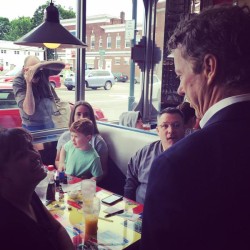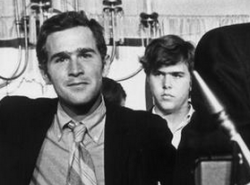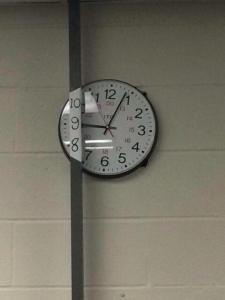Blog Archives
 A look at some of the photography of Mary Ellen Mark.
A look at some of the photography of Mary Ellen Mark.
When it comes to attraction and age, men really kind of are dogs.
How costs, regulations, the economy, and more are killing the starter home.
It’s a clear statement of… something… that after years and years of using taxes to incentivize the purchase of electric and hybrid cars, we’re complaining about the taxes they aren’t bringing in.
The Guardian has a couple of articles on the privitization and gating of cities. Pascal-Emmanuel Gobry looks at private cities. The whole concept makes me think of this article on post-democracy.
Pluto is too a planet, says Philip Metzger.
New research suggests that Buffy the Vampire Slayer – and even her more scantily-clad counterparts – really is good for empowering women. More on gender identity norms.
This stands to reason: If your job is routine, there’s a good chance it’s going to disappear.
Adam Ozimek continues his sysiphean quest to make the point that no, government assistance to low-wage workers are not employer subsidies (except possibly the EITC)… even though in his view (as in Oren Cass’s) we should structure things so that they kind of are. My own view is actually expressed pretty well by Coyote here, though without the first-hand perspective.
This is pretty cool: Things that foreigners like about America.
It’s like a pimple that showed up on the planet earth, except it’s an 800C pit of fire.
Here is a handy article on where states get their revenue.
A battle of stars versus lawns: astrologers and the maker of robotic lawnmowers are going at it.
 I don’t know whether the SEC was more obnoxious when they were full of themselves for winning championships, or when they whine when they don’t.
I don’t know whether the SEC was more obnoxious when they were full of themselves for winning championships, or when they whine when they don’t.
It has been making the news lately, and here’s an article on what makes Nebraska’s legislature different.
In the UK, Nick Cohen says Labour doesn’t realize why it lost, and in Alberta, people – such as myself – may be underestimating the NDP victory.
UAB Football program, terminated last year sparking a lot of anger, is coming back. It has a tough road ahead of it, and ifthis is true the university itself as it exists may be doomed.
Former Green Bay Packers and Texas A&M football coach Mike Sherman has taken a new job… at a Massachusetts high school.
St. Thomas University has a pitcher who weighs in at three-hundred pounds.
HBCUs are having a lot of trouble meeting NCAA academic requirements.
The Connecticut Huskies went 2-10 last year, with its only FBS-level victory against UCF. So what they did they do? They made UCF a rival and gave themselves a trophy. UCF is scratching its head, but UConn says that UCF’s permission is not necessary in the declaration of a rivalry. The two schools have played each other three times.
Friend of Hit Coffee Abel Keogh is quoted in this story about sex and the grieving widower.
Vice argues that the next president of FIFA should be… Mitt Romney, but Mark Thompson tweets explanations as to why that can’t happen.
The Cameron government wants to ban pleasure. Well, not quite, but they’re drafting some laws so broad that it’s hard to tell.
Will Wilkinson defends Rick Perry’s glasses. I still say Jeb Bush did a better job picking glasses out than Perry’s wife did.
Rick Perry is kicking off his presidential campaign with a BBQ. Though I hope not to be in a position to vote for Perry or Jindal, I might want to fly down and attend the latter’s kickoff if it includes a crawfish boil.
Robert Mann explains why Bobby Jindal is so unpopular, and Tunku Varadarajan explains his uncomfortable relationship with his race.
As a general advocate of school choice Nevada’s bill makes me nervous in the same way that some of the aggressive minimum wage increases should make advocates nervous.
Noah Smith has had it up to here with economists and pseudo-economists calling everything “signalling“:
Talk to economists, and you’ll find a large number who believe that college — that defining institution of America’s privileged youth — is mostly signaling. It makes sense, after all — don’t most people go to college because they think it will get them a job? And honestly, when was the last time you actually used any of the things you learned in college at your job?
Possibly the biggest promoter of the signaling theory of education is George Mason University’s Bryan Caplan. Caplan believes so passionately in the model that he’s writing a book about it, called “The Case Against Education.” He has already written enough blog posts on the topic to make a small book!
Caplan’s message is bound to appeal to people who dislike the institution of college, whether because they think it’s too politically leftist, or they’re worried about high tuition and student loans. But there are some big holes in the case. Caplan’s GMU colleague, Tyler Cowen, is rightfully skeptical of claims that college is mostly signaling. Let me add my voice to the skeptical chorus.
The piece isn’t just about college, and I’ll get to the rest later, but let’s start with college. He goes on to say:
Well… it depends. In theory, at least, going to work for 3-4 years may convey useful information about your work ethic… but will employers see it that way? More importantly, will the employers you want to work for see it that way? It depends on the job, I’m sure. I wouldn’t spent 3-4 years on a job you can get with only a high school diploma finding out, unless I could get the right job on the right track out of high school, which isn’t easy in large parts of the country.So is college a way to signal conscientiousness and willingness to work? Maybe. But an even better way to signal that would be to actually work at a job for four years. One would think that if young people needed to do some hard work to signal their work ethics, some companies would spring up that gave young people real productive work to do, and provided evidence of their performance. Instead of paying through the nose to send a signal of your industriousness, you could get paid. But we don’t see this happening.
When you think about it this way, the whole idea of college-as-signaling becomes a little absurd. People’s careers last for 35 to 45 years. But after you’ve been working for a while, prospective employers can look at your work history — they don’t need the college signal anymore. Caplan’s theory therefore is that many young people are spending four years — and lots of tuition money — on something that will only affect the very beginning of a career.
The problem with going straight into the workforce is that it can put you on a single track and it can be hard to get off that track. Unless you have somehow gotten a job where you’ve learned some useful work skills that employers want, I’m not sure “But I’ve shown up at McDonald’s every day for the last four years” is going to be that strong an argument. Now, maybe Smith would argue that’s proof that it’s value-added… but only if the employer is correct. More likely, the employer would just assume that you couldn’t go to college, are unambitious, or 100,000 other assumptions that don’t reflect well on you. They might just assume that you are the person who is meant to work at a job where you need to wear a funny hat. It’s a stages-of-life thing. Working at McDonald’s as a teenager might reflect well on you or might not, but working at McDonald’s past the stage where you’re supposed to be working at McDonald’s makes it look like you were held back a grade.
I didn’t realize how much I felt that employers felt this way until I moved to Deseret, where that was very conspicuously not the attitude. Some of it may be the big city vs small city distinction, but say what I will about Deseret and Mormons, they are people that seriously, seriously value a good work ethic. “You spent two years answering phones about cell phone service and were promoted to a vaguely supervisor job title? Wow, that’s great! You can probably learn XHTML! And completely not in a condescending way!” At best, the sense I got from Colosse is that at best you were biding your time. And why weren’t you going to college? A lot of this is really a collective action problem. By going to college, or not going to college, you’re putting yourself in a particular category with particular people. Which is sending a signal (whether in the way that economists are supposed to use the term or not).
I am not nearly as skeptical of college as Caplan is. I believe a lot of people really do get something out of it. I believe that I did. I believe that most people who spend their free time reading and commenting sites like Hit Coffee and Ordinary Times do. I also believe, as Smith goes on to mention, that there can be significant networking effects. Even at a non-stellar school like Southern Tech, you meet people. This is one of the reasons why for-profit universities so often have such terrible returns, and why which school you go to can matter a great deal at either the high end (Ivy Leagues!) or the lower end (bidirectionals, community colleges, or workbag schools).
Smith goes on to talk about other things, where the arguments range from particularly weak to particularly strong. Fashion? Yeah, a lot of fashion is signalling. Quite conscious and deliberate signalling at that. Leisure, though, is far less likely to be a signalling activity. Is its value embedded in other people knowing about it? Then signalling is probably involved. But if you don’t care what others think about it, then it’s probably not (or, at least, less so…).
 As it happens, if you charge users for their water, they use less.
As it happens, if you charge users for their water, they use less.
Australian researchers may have a breakthrough on Alzheimer’s.
Puerto Rico is losing its middle class, but gaining millionaires.
I’m not uniformly opposed to term limits, but the ones suggested here are too short. I’d be more open to 20 years in either house or 30 years total. (Senators would be able to complete their terms.)
Freddie deBoer looks at Purdue University’s newest pretty (and very empty) building, and contrasts it with important existing facilities, putting in a good word for cost-conscious alternatives. I’m personally a little bummed because I found out they’re tearing down the dorm I lived in for four years, and replacing it with more luxurious accommodations. They won’t be empty, at least.
To combat infanticide, China set up “safe havens” for abandonment (like we do with fire stations). Unfortunately, so many babies are being abandoned that they’re shutting them down.
Are investors getting in the way of traditional home-buyers?
I’m a tad skeptical of the plan of this DC developer to build “shared space housing.” You can think of it like dorms or retirement communities, but those places are narrowly selecting.
I… don’t even know how to feel about this: How would you like a perfume that smells like a dead loved one?
There’s water in that there valley, and oil in them there hills, in Antarctica.
Men and boys with older sisters are less competitive. I’ve long hoped that we have two kids with an older sister and a younger brother. It appears I am wise!
Michael Siegel points to an encouraging study on ecigarettes. So far the data has been surprising (to me) less encouraging than I had hoped, leaving me a bit dumbfounded. It worked for me and I want it to work for everyone. The public health community is doing what it can to make sure that it will help as few people as possible.
So what’s the deal with the medieval art with knights fighting snails? sdfsdf
The bad news is that judges, like the rest of us, are susceptible to motivated reasoning. The good news – which unlike the bad actually is news – is that they are less so.
A new study suggests that self-driving cars will be a boon to public safety. There are still a lot of things that the autocars cannot handle, however, and so it may be a while.
In the meantime, we’re likely looking at a future where cars take more and more off our hands and, piece by piece, do the driving for us. This could turn out to be a mixed bag, however, if we become too reliant on these vehicles too quickly. The fear is that risk compensation will cause more problems than the semi-automation will fix.
It’s something that makes a certain disconcerting sense to me. But it’s also something that’s not very new.
When I was young and she was alive, I used to get into arguments with my aunt on the subject of cruise control. She thought that cruise control was an absolutely horrible invention because it meant that drivers would pay less attention and therefore cause more accidents.
“What about automatic transmission?” I asked.
Completely different she explained, though she was never quite able to explain why automatic transmission made driving easier but cruise control made driving too easy. Why automatic transmission made it so that you could focus on your driving, while cruise control made it so that you wouldn’t. Maybe there is a good explanation, but I think a lot of it revolves around innovations that occur when you’re young enough to be interested in innovations.
Which is what I think about when I worry about drivers not paying sufficient attention to the road. I think cruise control is as awesome as my aunt thought automatic transmissions were, and I tend to chalk up my concern to automatic car distancing to her concerns about cruise control.
Then again, every innovation is different. And I do recall reading somewhere that Google actually had to step back on the automation because it’s drivers weren’t paying the attention that they needed to be taking. So maybe there’s something to it.
If you have any inclination towards country – or at least not allergic – here’s a guy named Terrell Nedrow playing a couple of songs by two great Oklahoma songwriters (Jason Boland and Brandon Jenkins):
Proud Souls is the ultimate “sittin’ alone and feelin’ sorry for yourself” song. If you want a more polished version, you can listen to the original Jason Boland version here, and Cross Canadian Ragweed has a version here.
Finger on the Trigger is another kind of downer of a song, written by Brandon Jenkins and recorded by him and Bleu Edmondson. Whereas Proud Souls is rather general – and applicable to whatever reason you find yourself feeling glum – Finger on the Trigger has more of a narrative. (Sadly, no YouTube for a studio version from Jenkins. Link goes to a performance.
 A medical resident in Mexico was caught sleeping on the job and attempts were made to shame her. Residents from across the western hemisphere responded with pictures of them also sleeping on the job.
A medical resident in Mexico was caught sleeping on the job and attempts were made to shame her. Residents from across the western hemisphere responded with pictures of them also sleeping on the job.
How the minimum wage moved from a national and state issue to a local one.
Child care providers in Los Angeles are concerned that they won’t be able to cope with a rising minimum wage.
Chinese businessman Li Hejun went to a clean energy conference, and lost $14,000,000,000 in the process.
Erik Kain’s piece on outrage culture is worth a read, in which he starts with this story where Internet Avengers managed to get two elderly hearse drivers fired on account of their need for sustenance.
Here’s an incredibly sad story of a woman who, on a plane, was texted by her husband that he was going to commit suicide, and the flight attendants wouldn’t let her try to call him to talk him out of it.
Bryan Lowder seems to really want to put gays in a pretty small box.
I found #CancelColbert to be silly until I realized that it was just a catchy phrase to raise a pretty ordinary complaint, and found the backlash against Suey Park to be kind of overdone. Elizabeth Stoker Bruenig wrote a piece on Park, and Freddie and Jay Caspian Kang had a dialogue about it.
The “bake my cake” argument, in reverse. A jeweler in Canada who opposes same-sex marriage agreed to make a wedding ring for a gay couple, and the gay couple is upset and wants their money back.
A DC councilmember wants to restrict charges of assaulting an officer to people who actually assault officers.
Courts in West Virginia ruled that drug addicts can sue their physicians even if they admit they have obtained the drugs illegally. Frances Coleman argues that bad pain doctors make things more difficult for good ones.
This pediatric dentist is the supervillain of the nightmares of young children.
Even though she lost, and I’m not on board with the anti-circumcision movement, I am with Heather Hironimus here. Circumcision should require the ongoing consent of both parents.
The atrocious ‘Innocence of Muslims’ ruling has been reversed.
The Supreme Court that two states can’t tax the same income. Alito, Roberts, Kennedy, Breyer, and Sotomayor were in the majority, and Ginsburg, Scalia, Thomas, and Kagan dissented. This will be of limited utility when state borders have sales tax on one side and income tax on the other, however.
Sarah Kliff argues that college newspapers provide good training for modern journalism:
Becoming editor-in-chief of my college paper broadened my perspective. I had to think about all the important ways to draw readers into stories: things like headlines and layout and photographs and illustrations. I spent lots of late nights in our basement office with the paper’s copy chief and lead designer. These produced an absurd number of inside jokes, as well as a granular understanding of how words and design have to work together for any publication.
Today I work for a website that looks really different from the one I edited in 2006. But my day-to-day job is surprisingly similar: generate interesting story ideas. Write about them. Use layout and design to draw readers in. And always try to do better the next time.

Photo by Milestoned 
The Daily Packer had no relationship with the university’s journalism school. More than that, very few actual journalism majors worked at the paper. From what I understand, they almost all thought it was beneath them. Which, to me, says something about journalism majors (or at least the ones at our school). Experience is experience, and clips are clips. There were multiple writers at city news outlets who actually cut their teeth at the Packer, though. It was actually pretty cool to see people graduate from the Packer to Colosse Weekly or even the Colosse Herald. I do wonder how the actual journalism majors did…
As we know newspapers have fallen on tough times. It falls into the category of things I hadn’t really thought about, but that would apply to college newspapers, too. Before becoming an opinion writer, I was a regular reader of it. I did what everybody did, which was pick up a copy on my way to class and read it while waiting for class to start. What else was there to do? Well now, of course, there is the smartphone, which has access to just about everything.
As such, the Daily Packer is no more.
Well, they do publish weekly. And there is a website that’s updated daily. Given that anybody accessing that site also has access to everything else on the Internet, though, I doubt it gets the attention that it used to. I would regularly have people talk to me about my columns, including strangers who recognized me from my pic. I wonder if that happens anymore. I’m afraid it probably doesn’t. But maybe it does. When they did a revamp of the site my last year, I did check the DP’s website every morning.
That wasn’t the only paycheck I collected from the Packer, though. I was also the delivery guy. That involved waking up at 5:30 every morning, walking across campus (past the DP building, which was never open for me to collect the writing paychecks) and driving a little go-cart and dropping off lots and lots of papers. It wasn’t a bad gig, all be told. I’d usually be done by 7:30 or 8 but was paid for 3-4 hours a day. (I could theoretically start later, but it was way easier to do it before there were lots of people walking around the campus.) The downside was that if I had a morning class, I didn’t have time to take a nap. I actually enjoyed my 8:30 Business Law class, but had a lot of trouble staying awake for it.
But I will always remember the degree of disgusting I felt whenever I finished. There was newsprint all over my hands. It was often really hot even before the sun rose, so I would be incredibly sweaty. I used an open blade to cut the binds, which meant that I would often cut my fingers (and almost all of my jeans had tears as a result). I don’t think there has been a ritual in my entire life as wonderful as that cold morning shower wiping off the newsprint, sweat, and sometimes blood.
We made $6 or $8 a column. Which was so little, and the office so far away, I rarely picked it up. The result was that some years ago, I found out that the university owed me over $100 in pay that I had never collected. The delivery money actually came out of a separate account – facilities, instead of student activities – and so they would mail me that check. Which wasn’t much money, but it was pretty great money.
… now the water’s wide and deep and brown, she’s crossing muddy waters”
This is a pretty great rendition of the John Hiatt classic you’ve probably never heard.
The song is from the point of view of someone left – with a child – behind by their significant other, with the implication of suicide as the method of exit. It makes me think of my wife’s uncle, who was left behind with a daughter and a son. The entire Corrigan family is success story after success story, except him. The next generation of Corrigans is similarly positioned to be successful in their endeavors… except the daughter who was left behind. Not that their failures, but they mostly seem to be just getting by. And in his case, oscillating between a fight against and a submission to alcoholism.
Here’s John Hiatt singing the song:
In may of 2011, I wrote the following on Facebook:
Michael Barone writes that Mitt Romney should not be considered the front-runner (link at bottom). I actually agree. He’s not substantively ahead in the polls (and is behind in many of them) and you shouldn’t call someone a front-runner unless they’re in the lead. But he remains the likely nominee. Barone’s writing, rather than refuting this point, actually supports it to an extent. He says that there are “only six” cases of the “next-in-line” (NIL) getting the nomination since the primary model was deployed in the 70’s, but that constitutes every non-incumbent nominee since the primary model was deployed in the 1970’s. There is not a single counter-example.
There are, as Barone points out, a number of “almost” counterexamples (Reagan in ’76, Alexander in ’96), but they remain “almosts” for a reason. It didn’t happen. The fact that the NIL nominee’s nomination was in doubt through the primary season actually supports the likelihood of a Romney nomination. Why? Because the second strongest argument against Romney’s nomination is that people aren’t really excited about him. But as past performance indicates, it doesn’t really matter. The next strongest argument is that Romney did something in Massachusetts that is very unpopular with GOP voters. This is the same party that nominated John McCain. Doesn’t matter.
I actually overstate my case somewhat. If a really strong candidate were to come forward, I don’t doubt that Romney could be unseated. In fact, if Huckabee runs, Romney shares the NIL title (though I think his establishment support will probably put him on top). But no candidate really comes to mind. All of them have substantial drawbacks. We’re likely seeing a replay of 2008, where all of the candidates have something that makes them “unacceptable” for some reason or another. The odd thing about 2008 was that it was full of candidates that I just couldn’t see winning the nomination. But one of them had to. The odder thing is that 2012 seems to be the exact same issue.
Absent Huckabee or a really strong candidate (no names come to mind, and I know a lot of names) entering, the only other way I see Romney losing is if it’s essentially a two-man race between Romney and Pawlenty. Pawlenty is not sufficiently exciting that he will stand out from a pack of candidates, but if voters are essentially given two choices, and one of them is the guy that ran the dry-run for Obamacare, I could see Pawlenty getting the nod. But that depends on a dearth of new candidates and a lack of traction among the people already running.
It’s a longshot. I say this as someone that is somewhat lukewarm about Romney and will likely support Pawlenty (or Daniels, if he runs). On the other hand, if Romney does pull out the nomination, I don’t think that the lack of enthusiasm for him (same goes for Pawlenty) means that he can’t win. John Kerry almost won, after all. As long as the GOP nominee meets a general threshold (which Romney, Pawlenty, Daniels, and Huckabee would all meet), the 2012 election will be a referendum on Obama more than anything else.

Photo by DonkeyHotey 

![[Car-Retarder Operator in Retarder Shack, Texas & Pacific Railway Company] by SMU Central University Libraries signal tower photo](http://hitcoffee.com/wp-content/uploads/2015/06/15694415443_18d9998c46_m_signal-tower1.jpg)